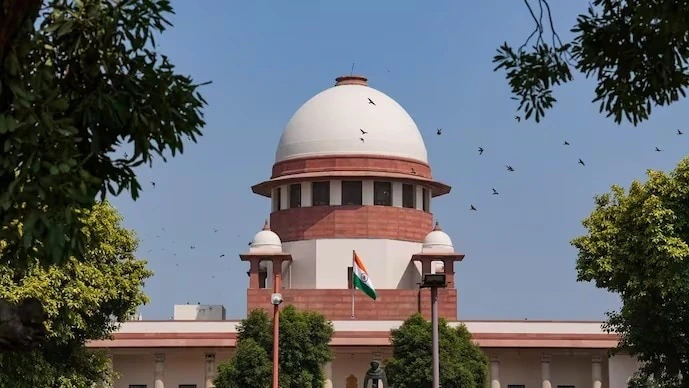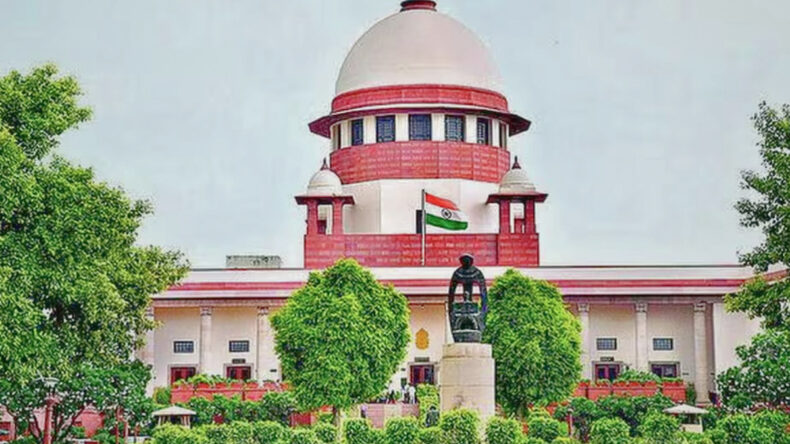
Supreme Court Registry Alerts Public to Fake Website Engaging in Phishing Attacks.
In a startling revelation, the Supreme Court Registry has issued a public notice cautioning the public against a fraudulent website that is masquerading as the official Supreme Court website. An imposter website has been found attempting to orchestrate phishing attacks, aiming to extract personal and confidential information from unsuspecting users. This recent development highlights the growing threat of cybercrime and the need for heightened awareness and vigilance while engaging online.
Phishing constitutes a cyber assault method where malicious actors employ cunning strategies to deceive people into divulging sensitive data like usernames, passwords, credit card digits, or personal identification specifics. Such data is commonly exploited for nefarious intentions such as unauthorized account entry, financial scams, or identity misuse. By imitating genuine online platforms, perpetrators prompt visitors to interact with a hyperlink, retrieve an attachment, or input their confidential details on a counterfeit website. This maneuver directs them to a webpage that might closely resemble the legitimate version but is under the control of the attackers.
Chief Justice of India, D Y Chandrachud, took a proactive stance in addressing this concerning issue. In a stern warning to lawyers, litigants, and the general public, Chandrachud emphasized the importance of caution, especially when it involves financial transactions. This timely alert from the highest judicial authority underscores the gravity of the situation and the potential risks associated with online interactions.
The Supreme Court’s response to this emerging threat included the issuance of a comprehensive public notice. This notice serves as a guideline for individuals to exercise prudence by refraining from clicking on or sharing any website links without thorough verification. The proliferation of fake websites impersonating official entities for malicious purposes has become a pressing concern, and this notice seeks to equip individuals with the necessary tools to navigate the digital landscape safely.
The fraudulent website in question operates under the URLs “http://cbins/scigv.com” and “https://cbins.scigv.com/offence”. The modus operandi of the attackers involves exploiting the URL “https://cbins.scigv.com/offence” by posing it as a platform to discuss the “Offence of Money-Laundering.” Through this avenue, cybercriminals attempt to manipulate unsuspecting visitors into divulging personal and confidential information. The Supreme Court Registry’s stern advisory leaves no room for ambiguity, warning individuals against falling prey to this scheme that could lead to identity theft and financial fraud.
The core message of the Supreme Court Registry’s notice revolves around the crucial need to verify the authenticity of online platforms. This fundamental practice is instrumental in mitigating the risk of falling victim to cybercriminals. The official Supreme Court website’s legitimacy can be easily confirmed by accessing the domain “www.sci.gov.in.” Any departure from this established domain should serve as a red flag, prompting individuals to exercise utmost caution.
In response to the severity of the situation, the Supreme Court Registry has escalated its concerns to law enforcement agencies. This strategic move underscores the collaborative effort between legal authorities and law enforcement bodies in tackling cybercrimes effectively. By reporting the issue to relevant agencies, the Supreme Court aims to facilitate a thorough investigation into the matter and identify those responsible for the fraudulent website.
In conclusion, the recent notice from the Supreme Court Registry serves as a wake-up call for individuals to exercise discernment and prudence in their online activities. The rise of phishing attacks and the impersonation of official websites underscore the critical importance of cybersecurity in today’s digital age. Through informed decision-making, proactive verification of online platforms, and heeding authoritative warnings, individuals can play a significant role in thwarting cybercriminals and protecting their sensitive information.
For further information and updates:
Individuals are encouraged to visit the official Supreme Court website at “www.sci.gov.in“.













